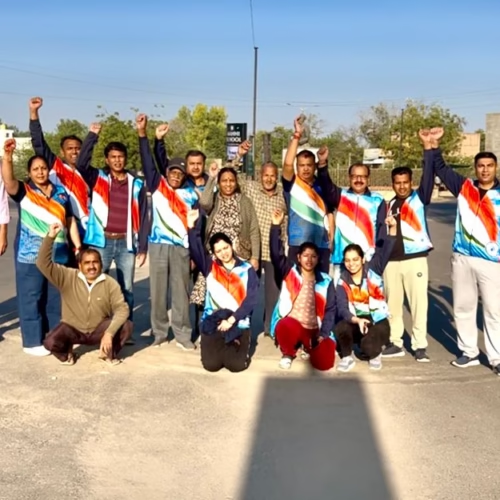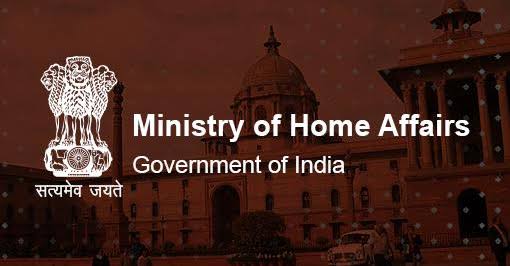BY DEFENCE JOURNALIST SAHIL | T.I.N. NETWORK
पाकिस्तान की ‘पैनिक प्रोपेगेंडा’: अफ़ग़ानिस्तान को “आतंकी ठिकाना” बताकर भारत पर झूठे आरोप — तालिबान से बढ़ती दुश्मनी और अंदरूनी बिखराव के बीच इस्लामाबाद की झूठी साज़िश
नई दिल्ली | अक्टूबर 2025 — भारत द्वारा ऑपरेशन सिन्दूर के बाद जिस पाकिस्तान ने अपनी सीमा के भीतर चरमराती सुरक्षा व्यवस्था, बगावत, और असफल सैन्य शासन से निपटने की बजाय हमेशा की तरह दोष भारत पर मढ़ने की कोशिश की है, उसने अब एक नया झूठ गढ़ा है — कि “भारत अफ़ग़ानिस्तान की ज़मीन को पाकिस्तान पर आतंकी हमलों के लिए इस्तेमाल कर रहा है।”
यह बयान पाकिस्तान की सेना के जनसंपर्क निदेशक लेफ्टिनेंट जनरल अहमद शरीफ चौधरी ने पेशावर में आयोजित एक प्रेस कॉन्फ्रेंस में दिया। लेकिन जिस शहर से उन्होंने यह बयान दिया, वहीं हर सप्ताह तहरीक-ए-तालिबान पाकिस्तान (TTP) और इस्लामिक स्टेट-खुरासान (IS-K) के हमले हो रहे हैं। यानी, पाकिस्तान की “आतंकी राजधानी” से भारत को आतंकवाद का दोष देना उसकी मानसिक हताशा का सबसे बड़ा प्रमाण है।
चौधरी ने दावा किया कि “भारत अफ़ग़ानिस्तान की धरती को पाकिस्तान के खिलाफ़ आतंकी ऑपरेशन बेस के रूप में इस्तेमाल कर रहा है” और यह भी कहा कि “हर अक्षर” — चाहे TTP हो या बलोच लिबरेशन आर्मी (BLA) — “अफ़ग़ान धरती से संचालित हो रहा है।” लेकिन उनका यह आरोप पाकिस्तान के भीतर भी उपहास का विषय बन गया। वहां के वरिष्ठ पत्रकारों ने इसे “एक सुनियोजित झूठ और ध्यान भटकाने की रणनीति” बताया।
दरअसल, यह बयान ठीक उसी वक़्त दिया गया जब पाकिस्तान ने काबुल पर हवाई हमला कर TTP प्रमुख नूर वली महसूद को निशाना बनाने की कोशिश की थी — और असफल रहा था।
“काबुल पर बम, और फिर भारत पर आरोप” — असफल रणनीति का दोहराव
पाकिस्तान का यह भारत विरोधी झूठ उस समय सामने आया जब उसकी तालिबान सरकार से रिश्ते ऐतिहासिक रूप से सबसे निचले स्तर पर पहुँच चुके हैं।
काबुल पर किए गए हवाई हमले के बाद अफ़ग़ान तालिबान सरकार ने पाकिस्तान को खुले शब्दों में चेताया — “यह हमारी संप्रभुता का उल्लंघन है, और इसका जवाब दिया जाएगा।” तालिबान के विदेश मंत्रालय ने पाकिस्तान के राजदूत को तलब कर औपचारिक विरोध दर्ज कराया, जबकि TTP ने तुरंत एक ऑडियो संदेश जारी कर कहा कि नूर वली महसूद जिंदा है और सुरक्षित है।
पाकिस्तान के रक्षा मंत्री ख़्वाजा आसिफ़ ने संसद में भावनात्मक भाषण देते हुए कहा कि “अब सब्र का बाँध टूट चुका है।” उन्होंने यहाँ तक कह दिया कि “अफ़ग़ान शरणार्थियों को अब अपने घर लौटना चाहिए।”
विश्लेषकों का मानना है कि पाकिस्तान का यह हमला और फिर भारत पर झूठा आरोप — दोनों एक ‘सामरिक विचलन रणनीति’ का हिस्सा हैं। अपनी असफलताओं से ध्यान हटाने के लिए पाकिस्तानी सेना ने वही पुराना कार्ड खेला है — भारत को दोष दो, जनता को भ्रमित करो, और खुद को देशभक्त बताओ।
भारत-अफ़ग़ानिस्तान की साझेदारी — पाकिस्तान की बेचैनी की जड़
असलियत यह है कि पाकिस्तान को भारत और अफ़ग़ानिस्तान के बीच तेजी से बढ़ते संबंधों से डर लग रहा है। हाल ही में अफ़ग़ान विदेश मंत्री अमीर खान मुत्ताक़ी की नई दिल्ली यात्रा — जो तालिबान शासन के बाद पहली उच्चस्तरीय यात्रा थी — ने इस्लामाबाद को गहरी चिंता में डाल दिया है।
नई दिल्ली में मुत्ताक़ी की मुलाक़ातें विदेश मंत्री डॉ. एस. जयशंकर और राष्ट्रीय सुरक्षा सलाहकार अजीत डोभाल से हुईं, जहाँ व्यापार, मानवीय सहायता और आतंकवाद-विरोधी सहयोग पर चर्चा हुई। यह वही क्षण था जब पाकिस्तान ने अचानक काबुल पर हमला किया।
अंतरराष्ट्रीय विश्लेषकों का मानना है कि पाकिस्तान की “भारत विरोधी प्रोपेगेंडा मशीन” असल में इसी बढ़ती साझेदारी से घबराई है। अफ़ग़ानिस्तान अब पाकिस्तान के “रणनीतिक गहराई” वाले पुराने सिद्धांत से बाहर निकलकर भारत जैसी स्थिर और विकासशील शक्ति के साथ काम करने को प्राथमिकता दे रहा है।
नई दिल्ली ने आधिकारिक तौर पर कोई प्रतिक्रिया नहीं दी, लेकिन भारतीय सुरक्षा प्रतिष्ठान के सूत्रों ने पाकिस्तानी आरोपों को “एक बौखलाई हुई सेना की पुरानी आदत” बताया।
‘स्ट्रैटेजिक डेप्थ’ की कब्र पर पाकिस्तान का खड़ा होना
1980 के दशक से पाकिस्तान का पूरा रक्षा सिद्धांत “रणनीतिक गहराई” यानी Strategic Depth पर टिका था — कि अफ़ग़ानिस्तान में एक ‘दोस्ताना’ शासन रहेगा जो भारत के खिलाफ़ बफर ज़ोन बनेगा। लेकिन अब वही तालिबान पाकिस्तान की नीतियों से खिन्न और विद्रोही हो चुका है।
काबुल अब पाकिस्तान की भाषा नहीं बोलता। तालिबान ने न केवल TTP को कुचलने से इंकार किया बल्कि भारत के साथ राजनीतिक और आर्थिक सहयोग को प्राथमिकता दी।
इससे पाकिस्तान की पूरी अफ़ग़ान नीति ध्वस्त हो चुकी है। इस्लामाबाद अब अपने ही बनाए जाल में फँस गया है — तालिबान उसका दुश्मन बन चुका है, टीटीपी उसकी सेना को मार रही है, और अंतरराष्ट्रीय समुदाय उससे दूरी बना रहा है।
2025 में अब तक TTP ने पाकिस्तान में 300 से ज़्यादा आतंकी हमले किए हैं जिनमें 800 से अधिक सैनिक और पुलिसकर्मी मारे गए। यह पाकिस्तान की ‘विफल आंतरिक युद्ध नीति’ का सबसे स्पष्ट सबूत है।
“भारत दोषी है” — पाकिस्तान का आख़िरी हथियार
अपनी असफलताओं को छिपाने के लिए पाकिस्तान के पास अब सिर्फ एक हथियार बचा है — भारत को दोष देना। यह वही तरीका है जिसने पिछले 75 वर्षों से पाकिस्तान को बार-बार असफल राष्ट्र की श्रेणी में धकेला है।
देश के भीतर सेना की साख गिर चुकी है। बलूचिस्तान और खैबर पख्तूनख्वा में जनता खुलेआम सेना के खिलाफ़ प्रदर्शन कर रही है। लापता नागरिकों, आर्थिक गिरावट, और लगातार होते आतंकी हमलों ने पाकिस्तान की जनता का भरोसा पूरी तरह तोड़ दिया है।
पूर्व जनरलों, पत्रकारों और विपक्षी नेताओं ने खुलकर कहना शुरू कर दिया है कि “अब सेना देश नहीं चला सकती।”
विशेषज्ञों का मानना है कि इसी भय और आंतरिक बिखराव से ध्यान हटाने के लिए पाकिस्तानी सेना ने “भारत-अफ़ग़ानिस्तान साज़िश” का झूठ गढ़ा है।
अमेरिकी हथियारों की कहानी — पाकिस्तान की नई साज़िश
DG ISPR अहमद शरीफ चौधरी ने यह भी कहा कि “अमेरिका के छोड़े गए हथियार अब TTP के पास पहुँच गए हैं और पाकिस्तान पर हमला करने में इस्तेमाल हो रहे हैं।”
लेकिन संयुक्त राष्ट्र की रिपोर्टें और स्वतंत्र जांचें इस दावे को झूठ साबित कर चुकी हैं। ज़्यादातर अमेरिकी हथियार तालिबान सरकार के कब्ज़े में हैं, न कि TTP के। असल में, पाकिस्तान की खुफिया एजेंसियां खुद इस हथियारों के अवैध व्यापार में शामिल हैं।
यानी, पाकिस्तान खुद अपने ही देश के खिलाफ़ हथियारों की तस्करी से मुनाफ़ा कमा रहा है और फिर उसी हथियार को भारत पर दोष लगाने के लिए इस्तेमाल करता है।
भारत की रणनीतिक चुप्पी — ताकत की भाषा
भारत ने पाकिस्तान के इन झूठे आरोपों पर कोई प्रतिक्रिया नहीं दी है — और यही इसकी सबसे बड़ी रणनीतिक ताकत है। नई दिल्ली का मौन एक सधी हुई नीति है — स्थिर लोकतंत्र बनाम अस्थिर सैन्य शासन का अंतर दुनिया को दिखाने के लिए।
भारत इस समय अफ़ग़ानिस्तान के साथ बुनियादी ढाँचे, व्यापार, शिक्षा, और मादक पदार्थ विरोधी अभियान में सहयोग बढ़ाने पर केंद्रित है। इसके अलावा भारत ईरान, रूस और मध्य एशियाई देशों के साथ मिलकर अफ़ग़ानिस्तान को स्थिर करने की दिशा में काम कर रहा है — जिससे पाकिस्तान की प्रासंगिकता और भी घटती जा रही है।
दक्षिण एशिया का बदलता भू-राजनीतिक परिदृश्य
भारत-अफ़ग़ानिस्तान की बढ़ती नज़दीकियों ने दक्षिण एशिया के समीकरण बदल दिए हैं। पाकिस्तान जो कभी काबुल की राजनीति में “एकमात्र निर्णायक शक्ति” माना जाता था, अब हाशिए पर जा चुका है।
तालिबान सरकार भी समझ चुकी है कि पाकिस्तान सिर्फ़ ड्रोन और आतंक देता है, जबकि भारत स्कूल, अस्पताल और सड़कें देता है। यही फर्क अब अफ़ग़ान जनता की सोच में भी झलकता है।
निष्कर्ष: झूठ के साम्राज्य का पतन
पाकिस्तान का नया आरोप न तो विश्वसनीय है और न ही नया। यह एक डगमगाते सैन्य तंत्र की पुरानी आदत है — जो अपने ही गुनाहों को छिपाने के लिए भारत पर दोष मढ़ देता है।
वास्तविकता यह है कि पाकिस्तान का आतंकवाद “भारत निर्मित” नहीं, बल्कि रावलपिंडी निर्मित है — जिसे उसकी अपनी सेना, उसकी अपनी ISI और उसकी अपनी विकृत नीतियों ने जन्म दिया।
आज जब भारत और अफ़ग़ानिस्तान साथ मिलकर स्थिरता की नई दिशा में कदम बढ़ा रहे हैं, पाकिस्तान उसी अंधकार में फँसा हुआ है जिसे उसने खुद रचा था।
पाकिस्तान का साम्राज्य अब झूठ की नींव पर नहीं टिक सकता — क्योंकि अब हर झूठ का जवाब उपग्रह तस्वीरें, खुले स्रोत खुफिया जानकारी और भारत की सधी हुई कूटनीति दे रही है।
BY DEFENCE JOURNALIST SAHIL | T.I.N. NETWORK
Pakistan’s Panic Propaganda: Islamabad Accuses India of Using Afghanistan as a “Terror Base” Amid Growing Rift with Taliban
India’s deepening ties with Kabul trigger unease in Rawalpindi as Pakistan’s military faces its worst internal security crisis in decades
New Delhi | October 2025 — In a desperate attempt to deflect mounting domestic pressure and international scrutiny, Pakistan’s military has reignited its decades-old propaganda machine—this time accusing India of using Afghanistan as a “terror base” to launch attacks on Pakistani soil. The claim, widely dismissed by international observers as a mix of paranoia and political theatre, marks yet another attempt by Islamabad to shift the blame for its own internal meltdown onto external forces.
The allegation was made by Lieutenant General Ahmed Sharif Chaudhry, Director General of Inter-Services Public Relations (DG ISPR), during a press conference in Peshawar—a city that has itself become the epicentre of rising terrorism, with weekly attacks claimed by Tehreek-i-Taliban Pakistan (TTP) and Islamic State-Khorasan (IS-K).
Chaudhry claimed that “India is using Afghan soil as an operational base for terrorism in Pakistan,” asserting that “every alphabet” of militant groups—from the TTP to Baloch Liberation Army (BLA)—was operating from Afghanistan “without any cultural or ideological restraint.” His statement, however, was met with deep scepticism even within Pakistan’s own media circles, who noted the timing of this press conference—just days after Islamabad’s controversial aerial strike on Kabul allegedly targeting TTP chief Noor Wali Mehsud.
The Timing: From Kabul Bombs to Blame Games
Pakistan’s sudden accusation against India comes at a particularly volatile moment in its regional diplomacy. Islamabad’s relations with the Taliban regime in Kabul—once considered its strategic asset—have reached breaking point.
Following the aerial bombardment in the Afghan capital, Taliban officials condemned Pakistan’s actions as “a violation of sovereignty,” warning that such aggression “will not go unanswered.” The Taliban Foreign Ministry summoned Pakistan’s ambassador in Kabul for an official protest, while the TTP swiftly released an audio message claiming its leader, Noor Wali Mehsud, was alive and unhurt.
The entire episode unfolded hours after Pakistan’s Defence Minister Khawaja Asif issued an emotionally charged statement in the National Assembly, declaring that the nation’s “patience had run out” over Afghanistan’s inaction against militants. He further accused Afghan refugees of being part of the problem, saying, “We have paid the price of 60 years of hospitality with our blood. The time has come for our guests to return home.”
Analysts believe the aerial strike and the subsequent anti-India narrative were not coincidental but part of a synchronized diversion strategy. The military establishment, facing unprecedented backlash for its failures in handling the insurgency in Khyber Pakhtunkhwa (KP) and Balochistan, appears to be attempting to externalize its crisis by reviving the India bogey.
India-Afghanistan Engagement: The Real Trigger
What truly seems to have rattled Islamabad is India’s steady diplomatic re-engagement with Kabul under the Taliban regime. Afghan Foreign Minister Amir Khan Muttaqi’s recent visit to New Delhi—his first since the Taliban takeover—marked a major breakthrough in regional diplomacy. During his meetings with External Affairs Minister Dr. S. Jaishankar and National Security Advisor Ajit Doval, the two sides discussed trade, humanitarian aid, and counterterrorism cooperation.
This unprecedented development coincided almost perfectly with Pakistan’s airstrike in Kabul, leading many analysts to argue that Rawalpindi’s outburst was as much about India’s growing footprint in Afghanistan as it was about TTP’s resurgence.
New Delhi, which has long maintained that its engagement with Afghanistan is focused on development and stability, has not commented officially on the Pakistani allegations. However, sources in the Indian security establishment privately described the ISPR statement as “a predictable act of deflection by a desperate regime losing control over its own creation.”
The Collapse of Pakistan’s Strategic Depth Doctrine
Pakistan’s entire regional policy since the 1980s has revolved around the concept of “strategic depth”—the belief that a friendly regime in Afghanistan could serve as a buffer against India. That doctrine now lies in ruins.
The Taliban, once nurtured and sheltered by Pakistan’s intelligence apparatus, has turned increasingly hostile. Kabul’s refusal to act against the TTP, coupled with its growing diplomatic comfort with India, has left Pakistan’s military in a position it has never faced before: isolated, distrusted, and surrounded by enemies it once considered assets.
According to intelligence sources, TTP networks continue to operate openly across eastern Afghanistan, recruiting from madrassas and conducting cross-border raids into Pakistan’s tribal districts. Despite repeated “talks” and temporary ceasefires brokered by the ISI, the group has carried out over 300 attacks in 2025 alone, killing more than 800 Pakistani soldiers and police personnel.
Unable to stem the tide of violence, the Pakistani military has found an easier outlet—blaming India—a tactic that resonates with the domestic narrative and helps maintain the façade of national unity.
Domestic Backlash and the Fear of Implosion
Within Pakistan, however, the military’s credibility is at an all-time low. Civilian leaders, opposition parties, and even retired officers are openly questioning the establishment’s handling of internal security. The National Action Plan (NAP), once hailed as Pakistan’s blueprint against terrorism, remains largely unimplemented.
The people of KP and Balochistan—the two provinces most affected by terrorism—are losing faith in both the army and the government. Protests against rising insecurity, forced disappearances, and economic hardship are now routine. Many Pakistanis are asking a dangerous but inevitable question: Has the Army lost control of the country?
Experts believe this internal crisis, coupled with growing international isolation, has pushed the Pakistani Army to revive its old playbook—“divert attention, blame India, and cry foreign conspiracy.”
The Weapon Left Behind: America’s Ghost Haunting Pakistan
DG ISPR Ahmed Sharif Chaudhry also sought to pin the blame on another convenient scapegoat—the United States. He claimed that the weapons left behind by the U.S. during its withdrawal from Afghanistan in 2021 have now fallen into the hands of militants attacking Pakistan.
However, multiple UN reports and independent investigations suggest otherwise. Most of these weapons are in possession of the Taliban government’s forces, not the TTP. Instead, the flow of arms into Pakistan is being facilitated through black markets operating under ISI’s watchful eyes, with corrupt officials profiting from the very crisis they now condemn.
Thus, Pakistan’s latest anti-India narrative is not about evidence but about optics—about preserving the myth of external victimhood to hide internal decay.
India’s Strategic Silence: A Calculated Response
Interestingly, India has chosen not to dignify Pakistan’s accusation with a response. This silence, analysts argue, is not weakness but strategy. By maintaining composure, New Delhi underscores the contrast between a stable democracy acting with restraint and a paranoid military regime lashing out at ghosts.
Sources indicate that India’s diplomatic focus remains firmly on expanding cooperation with Kabul in infrastructure, trade, and counter-narcotics—sectors where both nations share a natural alignment. India is also quietly coordinating with regional partners such as Iran, Russia, and Central Asian states to stabilize Afghanistan, a move that further sidelines Pakistan’s relevance.
Regional Implications: The End of Islamabad’s Monopoly
The growing proximity between India and Afghanistan represents a tectonic shift in South Asian geopolitics. For decades, Islamabad enjoyed a near-monopoly over Kabul’s political narrative. That monopoly is now broken.
The Taliban’s new engagement with India, despite decades of hostility during the pre-2001 era, signals a pragmatic pivot—Kabul needs partners who can deliver development, not drones. India, with its record of building schools, hospitals, and infrastructure in Afghanistan, offers exactly that.
Pakistan, meanwhile, finds itself cornered by the very forces it once empowered—Taliban, TTP, and global isolation—a trifecta of crises with no easy escape.
Conclusion: The Empire of Lies is Crumbling
Pakistan’s latest accusation against India is neither new nor credible. It is the reflex of a collapsing establishment, seeking to distract a restless population and justify a failed security policy.
For decades, Islamabad has weaponized disinformation to control its narrative—first against India, then against Afghanistan, and now against its own citizens. But in the age of open-source intelligence, satellite imagery, and global transparency, lies no longer travel as far as they used to.
In reality, Pakistan’s terror problem is not “Made in India.” It is manufactured in Rawalpindi, financed by its own deep state, and now spiraling beyond its control.
As India and Afghanistan cautiously build a new chapter of cooperation, Pakistan’s military finds itself trapped in the ruins of its own deceit—a regime haunted by the monsters it once created.













Add Comment